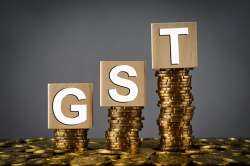Assocham seeks review of GST rates for agricultural inputs
Industry lobby Assocham on Wednesday urged the government to lower the Goods and Services Tax (GST) rates for select agricultural inputs, failing which use of chemical fertilisers will get a boost.

Industry lobby Assocham on Wednesday urged the government to lower the Goods and Services Tax (GST) rates for select agricultural inputs, failing which use of chemical fertilisers will get a boost.
"Higher GST in this segment will directly promote chemical use, thereby leading to an increase in green house gas emissions. Besides, it will also adversely impact public health," Associated Chambers of Commerce and Industry of India (Assocham) said in a communication addressed to Union Finance Minister Arun Jaitley here.
It asked the government to lower the tax rates on biofertilisers, biopesticides/biological control agents (BCA) and branded organic manure/vermicompost/ farmyard manure (FYM).
Biofertilisers and biological control agents are taxed at 12 per cent rate while branded organic manure attracts 5 per cent tax under the GST.
Such a taxation policy on these segments will directly contradict efforts being made by Prime Minister Narendra Modi in promoting variety of schemes and projects such as Swachh Bharat, Soil Health Card, Namami Gange and various organic missions, as the use of chemcial fertilisers is likely to increase, it said.
"The GST Council has recommended far higher tax rates on certain specific manufactured products that are exempted in several states like West Bengal, Sikkim, Uttarakhand, and others, or attract a basic five per cent VAT (Value Added Tax) in majority of states," Assocham Secretary General D.S. Rawat said.
Highlighting the importance of biofertilisers, the trade body said these are manufactured primarily by micro, small and medium enterprises (MSMEs) and also provide farmers an option towards sustainable agricultural practices like organic farming.
Besides, biofertilisers are highly beneficial as they are an alternative to chemical fertilisers that tend to spoil both soil and environment.
"While the biofertilisers have so far been left out of the tax ambit by a majority of states, including West Bengal, even NABARD (National Bank for Agriculture and Rural Development) provides additional support to this sector in the form of 50 per cent subsidy for setting up such units," Rawat said.
The government is promoting use of these beneficial microorganisms in various schemes for agriculture and allied sectors.